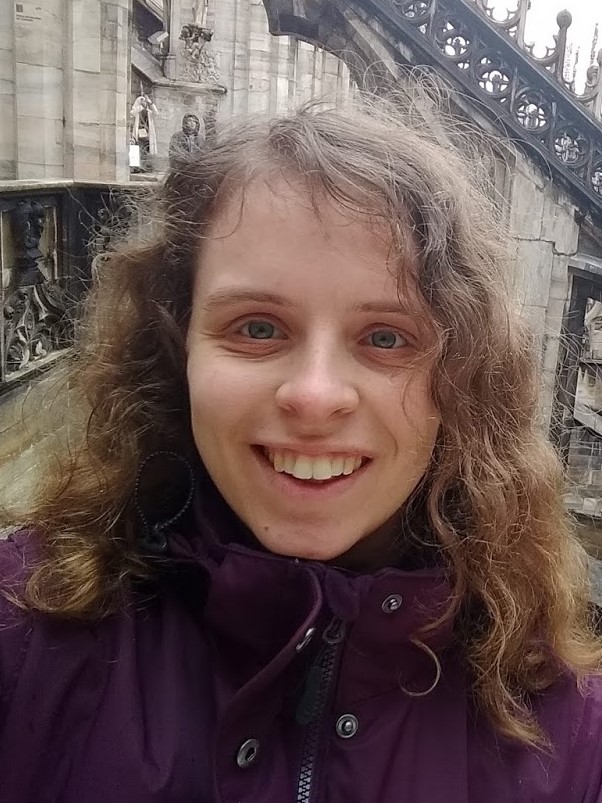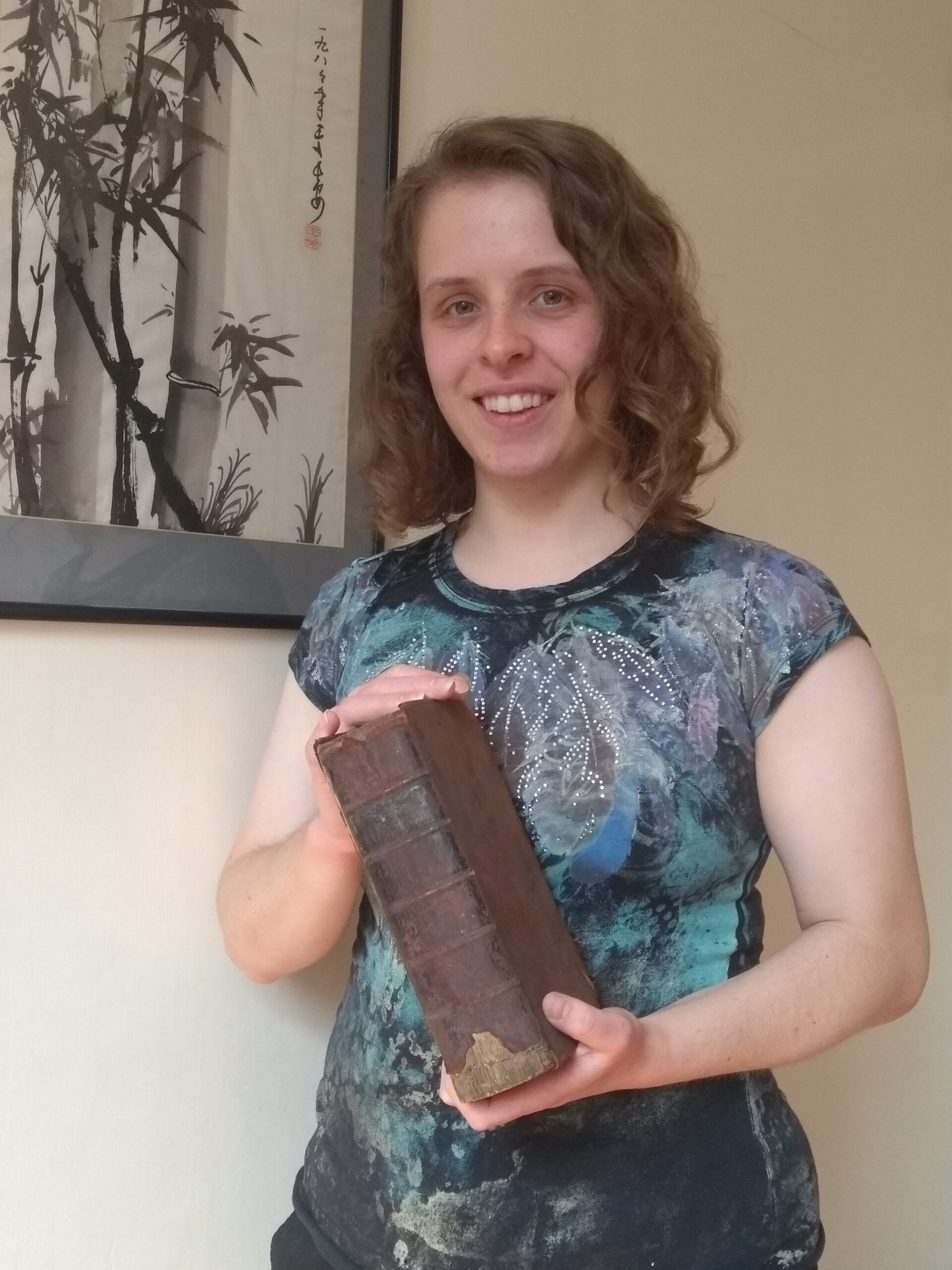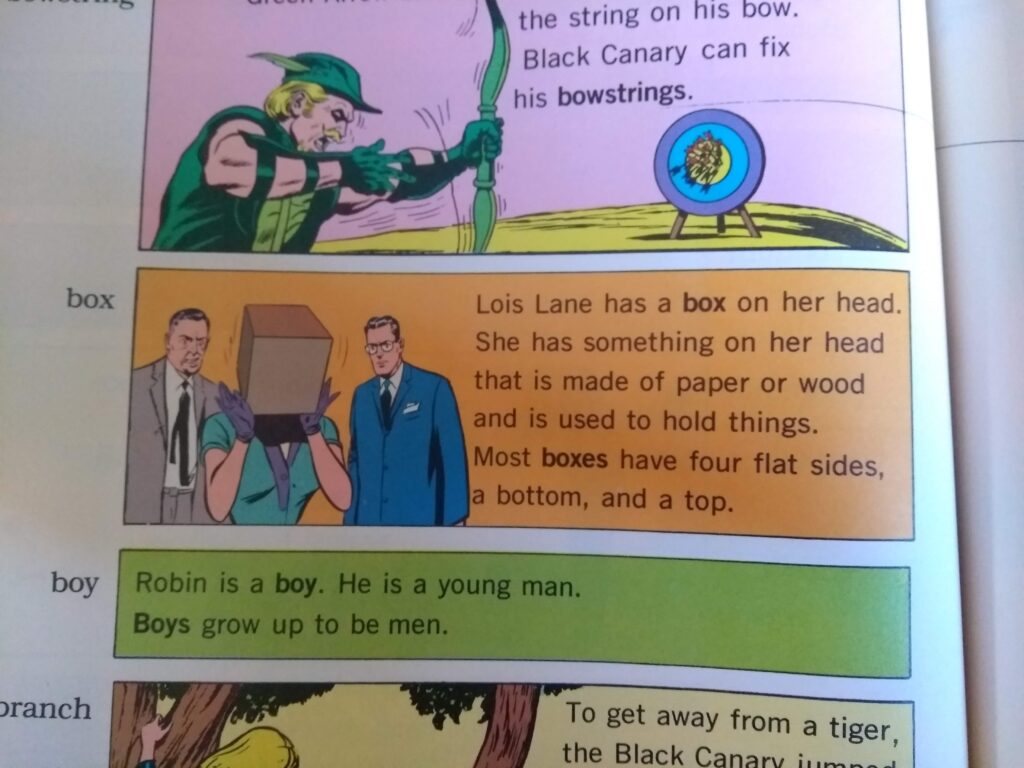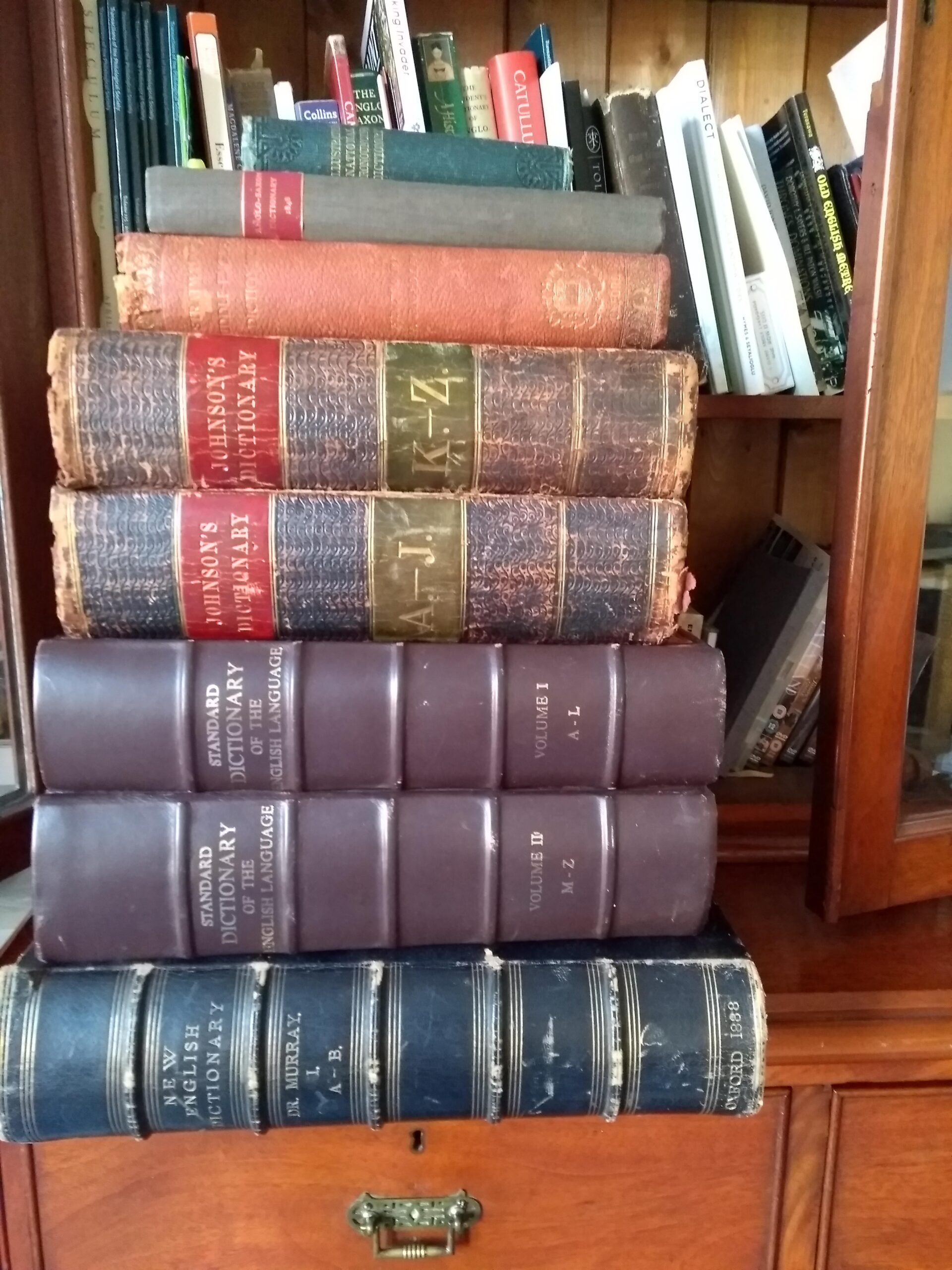Collecting Dictionaries
Rachel Fletcher

It’s a great honour to be asked by David Vancil to contribute to the newsletter a short piece on my collection of dictionaries. I have never considered myself a serious collector, and it was mostly on a whim that I decided to submit my collection to the University of Glasgow Library’s David Murray Book Collecting Prize at the beginning of 2020. So I was a little startled, as well as excited, to find out that I had been selected as one of two joint winners of the 2020 prize.
My BA was at Magdalene College, Cambridge, where I started off in the department of Anglo-Saxon, Norse and Celtic before moving to linguistics. I found my dictionaries niche as a postgraduate student; I moved to the University of Glasgow to do an MPhil by research on the first published dictionary of Old English (William Somner’s 1659 Dictionarium Saxonico-Latino-Anglicum) and stayed for a PhD on representations of the Old English-Middle English period boundary in dictionaries of Old English, which I began in 2017 and (I hope!) will have submitted by the time this is published.
My collection of dictionaries reflects these academic interests by being focused on the intersection between lexicography and the history of English. In practice, this means that I mostly collect either period dictionaries of Old or Middle English, or else dictionaries that are themselves old enough to offer an interesting insight into the history of English. I also have a small, related collection of books by and about notable lexicographers; I’m particularly proud of my battered copy of The Ring of Words: Tolkien and the Oxford English Dictionary, which Peter Gilliver very kindly signed for me when I met him at a conference.
However, the boundaries of my collection are rather fuzzy, both because it inevitably overlaps with dictionaries that I have bought to use as day-to-day reference for my academic work, and because I acquired a lot of them long before I ever admitted to myself that I was collecting. I have a copy of the Britannica World Language Edition of the Oxford Dictionary that I fell in love with in a charity shop more than a decade ago, but the first dictionary that I intentionally added to my collection was probably an 1832 edition of Johnson’s dictionary. When I bought it, it was the oldest book I’d ever owned (though I’ve since acquired a 1781 Dyche and Pardon that takes that spot), and I think that was the point I admitted to myself that I was collecting dictionaries for their own sake and not because it was remotely practical to own them! It helped that it was also a remarkable bargain; I found one volume of the two-volume set in a bric-a-brac shop in Glasgow, but the other one was nowhere to be found so the shopkeeper offered me a discount. I happened to return to the shop several weeks later, and was very surprised to stumble across the second volume in the middle of a huge pile of unsorted books. The shopkeeper was very generous and didn’t charge me full price now that I had the matching set.

My favourite way of acquiring books is by chance discovery, so my dictionary purchasing has been limited by the UK coronavirus lockdown. Despite that, though, I’ve managed to add some interesting odds and ends to the collection recently. A few months ago I bought a very battered copy of John Jamieson’s A Dictionary of the Scottish Language, in the abridged edition of 1846. I ordered it online and the seller hadn’t included much information about it, but I was intrigued by the mention of some interleaved notes, which are proving very interesting. It seems that they may have been moved from an 1818 edition of the same dictionary, and it’s likely that they were written by James Morton, who edited and translated the early Middle English Ancrene Riwle, or Guide for Anchoresses, for the Camden Society in 1853. That means the book fits nicely within my collection on the history of English, despite Jamieson’s work being a dictionary of Scots. The notes are, unfortunately, too vague to be of much real use as evidence for the history of Scots, but it’s a rather special find nevertheless. I’ve also just bought two small Modern English-Old English translation dictionaries. I’m fascinated by how (and why) people today produce texts in neo-Old English, so I thought that they would make a nice addition to the collection, even though I wouldn’t recommend either of them to a serious student of Old English.
Some other highlights of the collection include the second edition of Webster’s New International, which means I can now show all of my friends and family the entry for ‘dord’. Joseph Bosworth’s Compendious Anglo-Saxon and English Dictionary (1848), which makes a brief appearance in my thesis, is a particularly effective example of the way the study of Old English was framed in the nineteenth century to appeal to nationalistic sentiments: ‘Every Englishman who glories in the vigour of his Father land, — who would clearly understand, and feel the full force of his Mother tongue, ought to study Anglo-Saxon, as this is the immediate and copious source of the English language.’ (Bosworth 1848: iv) Although it is less relevant to my collection’s focus on the history of English, I also can’t resist including my copy of The Super Dictionary (1978), which is an illustrated children’s dictionary that includes impressively bizarre example sentences such as Lex Luthor stealing cakes and Wonder Woman having her shoes taken by a whale.

Entering the David Murray prize was a fantastic experience, and one that has encouraged me to expand my collection further. By the standards of the DSNA, it will probably always be a very small collection; the constraints of a student budget and student shelf-space put a natural limit on my hoarding impulses. Nevertheless, I will definitely be keeping an eye open for other dictionaries on sale, especially ones relating to Old English. I would also like to encourage any other students reading this to investigate book collecting prizes run by their own universities and consider taking part. Entering gave me a useful push to catalogue my collection and think seriously about my future goals for it. It was also an interesting exercise in articulating the unique pleasures of dictionaries to an audience who, perhaps, hadn’t yet realised how fascinating and varied they can be. In that respect, at least, I hope that my collection has done the DSNA proud.

